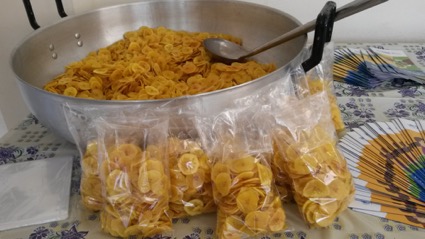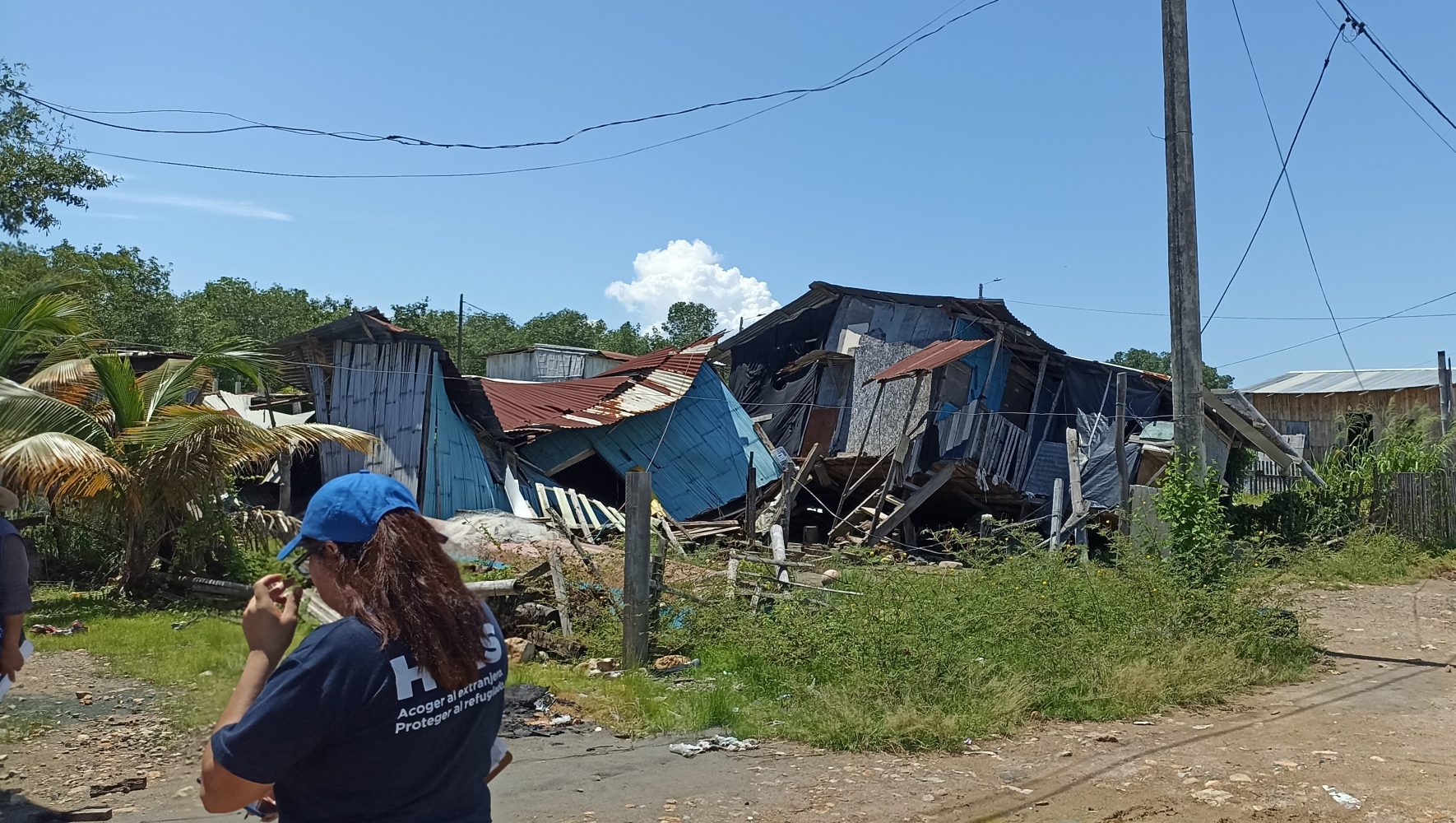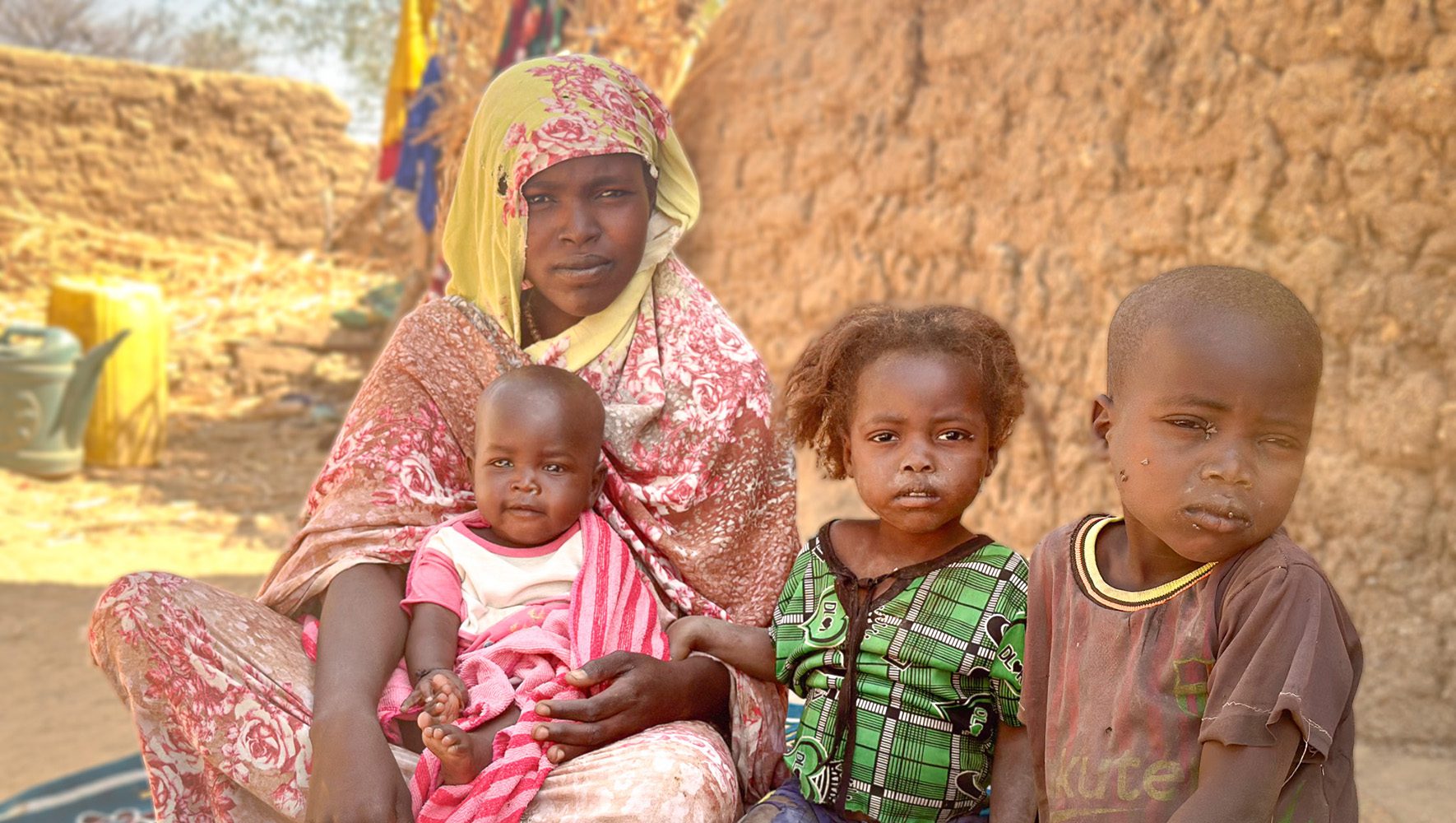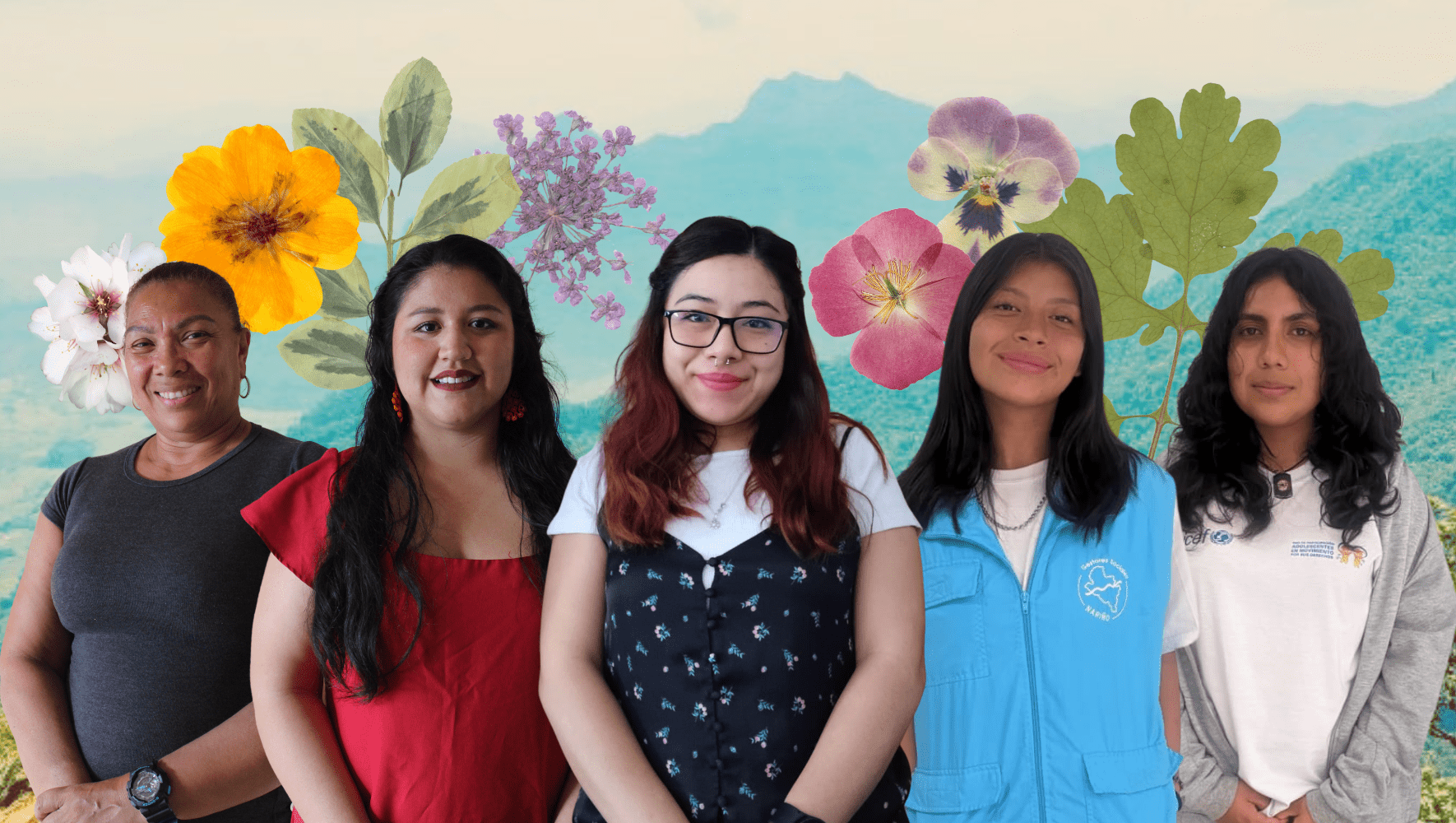For Refugee Co-op in Ecuador, Self-Sufficiency Through Plantains
By Rachel Shulruf, HIAS.org
Feb 16, 2016

The final product: plantain chips produced by the Agrolipteños Business Association in Ecuador.
(HIAS Ecuador)
The Agrollipteños Business Association in Ibarra, Ecuador, a city about 70 miles north of Quito, produces organic snacks made out of plantains that are both healthy and delicious. Comprised of six Colombians and seven Ecuadorians, the members of the group are diverse in age, gender and nationality but according to Laura*, the president of the association, they are united by a shared goal: “to earn enough money to send our children to university.”
The group credits HIAS for bringing them together. HIAS provided the Business Association with a micro-grant of $3,500 to help fund the creation of the production center, accompanied members to buy necessary materials and supplies, and helped train members to manage a small business. HIAS connected the group with a local university which provides technical assistance on an ongoing basis in a variety of areas, including conducting a market mapping exercise to help determine if and where their products would sell. The university has also provided assistance with graphic design and taught the group to use machines to produce their snack products, which previously were made entirely by hand.
[[{"fid":"1519","view_mode":"default","fields":{"format":"default","field_file_image_alt_text[und][0][value]":"The logo designed for the Agrolipteños Business Association","field_file_image_title_text[und][0][value]":"The logo designed for the group."},"type":"media","attributes":{"alt":"The logo designed for the Agrolipteños Business Association","title":"The logo designed for the group.","style":"margin: 10px 15px; float: left; border-width: 0px; border-style: solid;","class":"media-element file-default"}}]]
The Business Association recently identified a new workspace, which the Ecuadorian government has agreed to let them use rent-free for a few years. In the future they hope to find a larger factory where they can produce their plantain products as well as snacks made out of yucca. HIAS helped them to set up the new production line and is helping the association to obtain the necessary health department permits for each of its products. Funding for this project was generously provided by the United States Department of State's Bureau of Population, Refugees and Migration.
Working with the Agrolipteños Business Association is just one example of how HIAS Ecuador helps engage refugees in entrepreneurial initiatives, encouraging groups of Colombians and Ecuadorians to collaborate in order to grow the scale and presence of their businesses. Such cooperative ventures are important because so many Colombians living in Ecuador are trapped in informal, unregulated jobs.
“Its heartbreaking to see refugees, who were forced to leave their homes and livelihoods behind because of gang violence in Colombia, suffer further even as they attempt to rebuild their lives here,” said Sabrina Lustgarten, Director of HIAS Ecuador. “Unfortunately, the process for obtaining legal documentation is complicated and lengthy which prevents Colombians from accessing essential needs such as medical care and financial services, and makes it difficult to obtain work permits. Without legal protection their earnings are nominal and they are at-risk of being exploited by employers or, if they are self-employed, having their business shut down or even confiscated by authorities.”
In addition to facilitating and encouraging collaborations, HIAS Ecuador has partnered with the Ecuadorian bank Banco Pichincha so that beneficiaries can open bank accounts. HIAS staff manage a job database which includes beneficiaries’ professional profiles as well as job opportunities. Staff work to cultivate relationships with new and existing employers, explaining the benefits of working with refugees and asylum seekers, and sending client profiles when there is a vacancy.
By offering a robust menu of programs including job market guidance, job referrals, vocational trainings and employment workshops, HIAS hopes to provide opportunities to develop income-generating activities to many more of the refugee families working to rebuild their lives in Ecuador. These opportunities are particularly important for residents of Lita, a nearby rural community. Lustgarten anticipates that the project will have a positive impact on that underserved community by providing economic development “using its most emblematic product.”
“As Laura’s group has shown, given the right tools and training, refugees have the will and desire to succeed as entrepreneurs,” Lustgarten said.
*Name has been changed to protect the privacy of the individual


